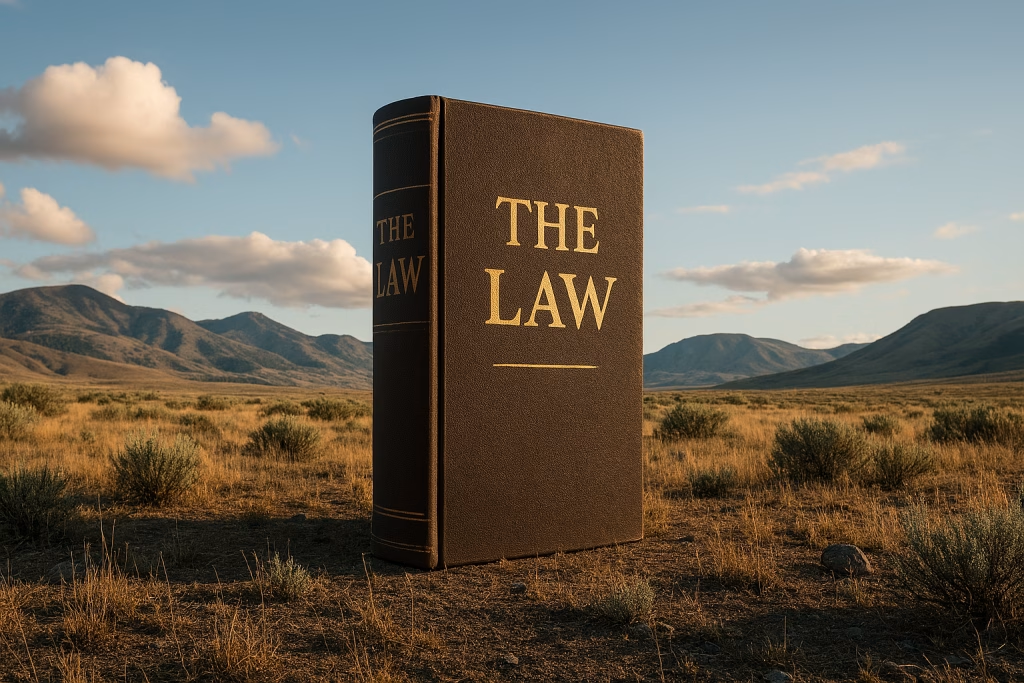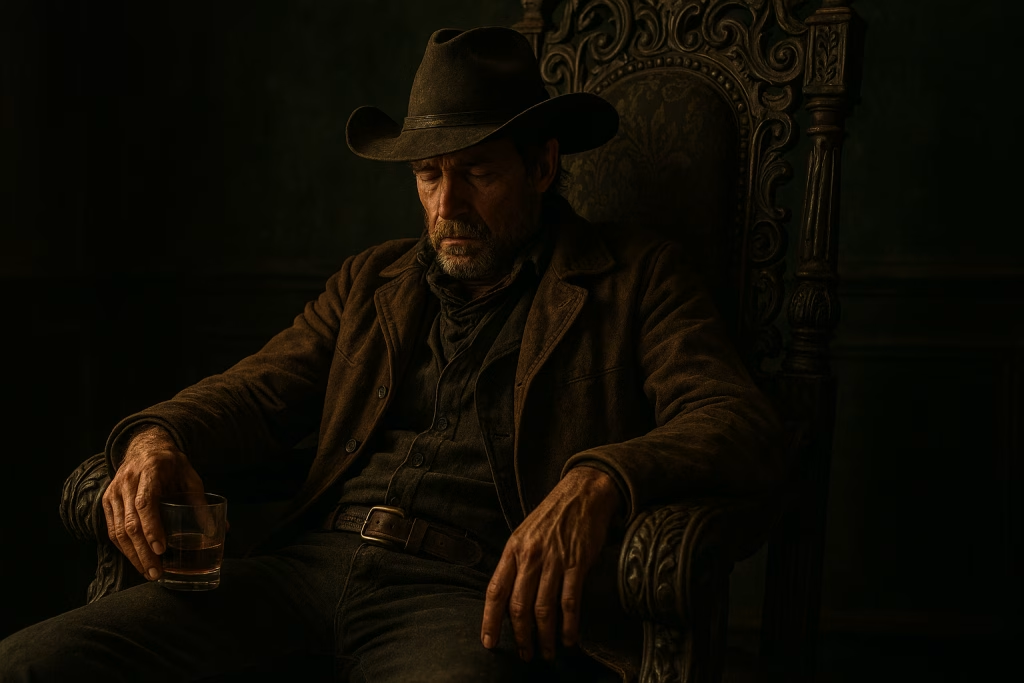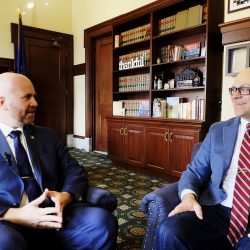There’s no question that we take our status as citizens of the American Republic for granted—just look at the 8% turnout for last week’s election in Ada County. We are so accustomed to our current system that we forget what a novelty it was when our Founding Fathers created it.
Remember how few of us batted an eye when President George W. Bush launched crusades to establish Western-style democracies in Afghanistan and Iraq two decades ago? “The liberty we prize is not America’s gift to the world; it is God’s gift to humanity,” he said. We assumed that human beings of all nations and cultures strongly desired the same system of government we’ve long enjoyed. Remember how excited everyone was to watch Iraqis dip their fingers in purple ink to show they had voted? If only we were as excited about our own local elections.
A republican form of government is an historical outlier, not the norm. Since the dawn of time, mankind has been organized into families, clans, tribes, and peoples—usually with a single chieftain at the top. (The word “chief” evolved from the Latin word for head.) The Greek and Roman republics of the first millennium before Christ stood out in a world of kings and emperors, but even they eventually transitioned into dictatorial rule.
Our Founding Fathers drew on English political tradition and Greek and Roman philosophy in designing our government, but at the same time they recognized that they were creating something new. Even a cursory reading of the Federalist Papers makes that clear. Alexander Hamilton, Thomas Jefferson, and George Washington were akin to modern startup CEOs, aiming to disrupt the existing systems by doing something better and faster than their competitors.
A republican form of government is not guaranteed to succeed. The French Revolution, beginning around the same time we ratified our Constitution, spiraled into madness and chaos, only finding stability under the ambitious and autocratic Napoleon Bonaparte. The Second French Republic reached the same destination when its first and only president, Louis Napoleon, followed his uncle’s example and made himself emperor.
It was during the time of France’s Third Republic that former President Theodore Roosevelt spoke at the Sorbonne, a university dating back to the medieval era. What a moment that was—three centuries after Christopher Columbus opened the New World to European settlement, a descendant of those settlers returned to the Old World to explain to the sons of kings and noblemen what it meant to be a citizen of a republic.
We all know the part of the speech where Roosevelt extols the “man in the arena,” but there is much more in that address that speaks to us today, despite the wide gulf of time. The entire speech is worth reading, but I’d like to highlight some of the ways it applies to our own moment.
After explaining how the early pioneers of the New World could not afford to be civilized men on an uncivilized frontier, Roosevelt observed that monarchies and autocracies rose or fell depending on the character of their rulers. Republics, on the other hand, depend on the character of their citizens:
A democratic republic such as ours—an effort to realize in its full sense government by, of, and for the people—represents the most gigantic of all possible social experiments, the one fraught with great responsibilities alike for good and evil. The success of republics like yours and like ours means the glory, and our failure the despair, of mankind; and for you and for us the question of the quality of the individual citizen is supreme… With you here, and with us in my own home, in the long run, success or failure will be conditioned upon the way in which the average man, the average woman, does his or her duty, first in the ordinary, every-day affairs of life, and next in those great occasional cries which call for heroic virtues. The average citizen must be a good citizen if our republics are to succeed.
We take for granted the difference between subjects and citizens. If we were subjects of a benevolent monarch, we could safely ignore the world of politics, leaving that to the king and his advisors. What a relief that might be—not having to worry about what our government is doing. But for citizens, tasked with the awesome responsibility of self-government, disengagement is not an option. Every one of us must not only govern ourselves, but take part in the great discourse of republican service.
After warning his audience against sneering at the common people from ivory towers (the “man in the arena” section), Roosevelt took aim at those who complain and philosophize without committing to action:
It is war-worn Hotspur, spent with hard fighting, he of the many errors and the valiant end, over whose memory we love to linger, not over the memory of the young lord who “but for the vile guns would have been a valiant soldier.”
Better to try and fail, Roosevelt says, than to not try at all. Inaction is the great temptation on the right, especially in this information age. It’s easy to believe that arguing on social media is an accomplishment—a way of “moving the needle”—when it’s more often just sitting on the sidelines criticizing those who are actually in the arena. How many keyboard warriors do you know who have no shortage of complaints and criticisms, yet offer no real solutions to the problems we face? How many talk big on the internet but are nowhere to be found when city councils and legislative committees are deliberating?
Roosevelt warns that intelligence, cleverness, and oratorical skill—while important—cannot substitute for what he calls “everyday virtues”:
We must ever remember that no keenness and subtleness of intellect, no polish, no cleverness, in any way make up for the lack of the great solid qualities. Self-restraint, self-mastery, common sense, the power of accepting individual responsibility and yet of acting in conjunction with others, courage and resolution—these are the qualities which mark a masterful people. Without them no people can control itself, or save itself from being controlled from the outside.
Later in the speech, Roosevelt criticizes not only wealthy men who do nothing to help their people, but also those who misuse their rhetorical talents to lead people astray:
It is a sign of marked political weakness in any commonwealth if the people tend to be carried away by mere oratory, if they tend to value words in and for themselves, as divorced from the deeds for which they are supposed to stand. The phrase-maker, the phrase-monger, the ready talker, however great his power, whose speech does not make for courage, sobriety, and right understanding, is simply a noxious element in the body politic, and it speaks ill for the public if he has influence over them.
As a writer, this hits close to home. Am I using my God-given talents for good or for ill? Am I simply a “phrase-maker,” a “phrase-monger,” a “ready talker”? My goal with this platform is not to simply hear myself talk, but to give you tools to be better engaged as citizens of the American Republic. I’ll never be the man Teddy Roosevelt was—few in human history can claim such a mantle—but I hope to be inspiring and encouraging in my own way.
This is another temptation that conservative journalists and influencers face. How many publications are just gossip rags or clickbait mills? Roosevelt goes on to warn against the use of journalism as rhetorical poison:
Offenses against taste and morals, which are bad enough in a private citizen, are infinitely worse if made into instruments for debauching the community through a newspaper. Mendacity, slander, sensationalism, inanity, vapid triviality, all are potent factors for the debauchery of the public mind and conscience. The excuse advanced for vicious writing, that the public demands it and that the demand must be supplied, can no more be admitted than if it were advanced by purveyors of food who sell poisonous adulterations.
Roosevelt clearly had no patience for armchair quarterbacks. His criticism of idle debaters offering no practical solutions reminds me of my recent essay about the mirage of libertarianism:
The impractical visionary is far less often the guide and precursor than he is the embittered foe of the real reformer… Woe to the empty phrase-maker, to the empty idealist, who, instead of making ready the ground for the man of action, turns against him when he appears and hampers him as he does the work.
I recently saw someone on Twitter observe that libertarians often become so attached to doctrine that they forget what the doctrine was originally meant to accomplish. Many libertarians support open borders, based on the principle that human beings should be free to move and live where they wish—despite the very real consequences of mass migration, which has fundamentally altered the nature of our society. The weakness of a republican system is that elites can achieve their goals by altering the voter base through immigration. Libertarianism has no answer to this, and as Roosevelt warned, idealists often become impediments to action.
This isn’t just a libertarian problem, though. We all face the temptation to fight against those in the arena who aren’t doing things our way. Recall Michael Anton’s seismic essay, The Flight 93 Election, which castigated Republicans who opposed Donald Trump for daring to take seriously their endless warnings of the existential dangers posed by the progressive revolution.
Many crave the comfort of the ivory tower over the mud and blood of the arena. Others are controlled opposition, playing the role of the Washington Generals to the left’s Harlem Globetrotters. But as the Dread Pirate Roberts said in The Princess Bride, “We are men of action.” In his 1910 speech, Theodore Roosevelt set out three qualities that good citizens of a republic must possess:
- A willingness to work to provide for one’s family
- A willingness to fight to defend one’s country
- A willingness to have children
Regarding work, Roosevelt said:
But the average man must earn his own livelihood. He should be trained to do so, and should be trained to feel that he occupies a contemptible position if he does not do so; that he is not an object of envy if he is idle, at whichever end of the social scale he stands, but an object of contempt, an object of derision.
Something drastically changed in the American character between 1910 and today. Somewhere between Franklin Roosevelt’s New Deal in the 1930s and Lyndon Johnson’s Great Society in the 1960s, we lost the satisfaction of hard work and the shame of failing to support ourselves and our families. Welfare evolved from being a social safety net to an expectation, an entitlement. Recall the hysteria here in Idaho in response to the idea of requiring able-bodied adults on Medicaid to work a mere 20 hours per week.
Regarding military service, Roosevelt said:
The good man should be both a strong and a brave man; that is, he should be able to fight, he should be able to serve his country as a soldier, if the need arises. There are well-meaning philosophers who declaim against the unrighteousness of war. They are right only if they lay all their emphasis upon the unrighteousness. War is a dreadful thing, and unjust war is a crime against humanity. But it is such a crime because it is unjust, not because it is a war. The choice must ever be in favor of righteousness, and this whether the alternative be peace or whether the alternative be war. The question must not be merely, is there to be peace or war? The question must be, is it right to prevail? Are the great laws of righteousness once more to be fulfilled? And the answer from a strong and virile person must be “Yes,” whatever the cost.
This remains an important consideration in an era in which our political leaders involve us in ever more unrighteous foreign conflicts. As I wrote on Monday, we should still honor those who answered their country’s call—even when that call itself was wrong. I wonder how many of those in the audience at the Sorbonne in 1910—the best and brightest of France—would give their lives a few short years later in the trenches of World War I.
Finally, Roosevelt urged his audience to be fruitful and multiply:
Finally, even more important than ability to work, even more important than ability to fight at need, is it to remember that the chief of blessings for any nation is that it shall leave its seed to inherit the land. It was the crown of blessings in Biblical times, and it is the crown of blessings now. The greatest of all curses is in the curse of sterility, and the severest of all condemnations should be that visited upon willful sterility. The first essential in any civilization is that the man and the woman shall be father and mother of healthy children, so that the race shall increase and not decrease.
Modern ears might shy away from Roosevelt’s use of the term “race” here, but his point remains cogent. It’s tempting to think of ourselves as the culmination of many years of progress, but we must remember that we are merely one link in a chain that stretches backward and forward into eternity. Every one of your ancestors—from your father and mother all the way back to the dawn of time—bore children so that the human race would continue. How could you possibly allow yourself to break that link? We have a responsibility to the future, and the future belongs to those who show up. As Roosevelt reminds us, if we neglect our responsibility to raise the next generation, then it doesn’t matter what else we accomplish, because it all dies with us.
Near the end of the speech, Roosevelt warned against the biggest temptation possible in a republican form of government, that being unchecked populism:
Of one man in especial, beyond any one else, the citizens of a republic should beware, and that is of the man who appeals to them to support him on the ground that he is hostile to other citizens of the republic, that he will secure for those who elect him, in one shape or another, profit at the expense of other citizens of the republic.
Unfortunately, this seems to have become the norm in the American Republic of the 21st century. Mass migration has brought ethnic fault lines into the body politic, while Marxism and socialism use envy as political tools. Is there an offramp from the politics of friends versus enemies, or must we first win the war in front of us before returning to a more civilized time? One thing is for certain—this environment is ripe for grifters, as Roosevelt recognized:
If a public man tried to get your vote by saying that he will do something wrong in your interest, you can be absolutely certain that if ever it becomes worth his while he will do something wrong against your interest.
I strongly urge you to read the entire speech. If you prefer to listen (after all, it was originally a speech, not an essay), then check out this recitation:
The American Experiment that our Founding Fathers set in motion nearly 250 years ago requires an engaged citizenry—remaining on the sidelines is not an option. If you’re not going to bother taking part in the government of our Republic, then why bother with a republic at all? We might as well appoint a king and go back to mowing the lawn and watching TV.
Yet if we desire to keep the Republic our Founders gave us, we must do our part. Learn about the issues. Study the wisdom of those who came before. Understand how government actually works in practice—not just the idealized version you wish it to be. Vote. Volunteer. Run for office. Move the needle in the direction of more freedom and liberty for your posterity.
None of us could ever fill the shoes of a great man like Theodore Roosevelt, but all of us can step up and be the virtuous citizens he believed were essential to the survival of Western democracies. Will the United States of America stand the test of time, or will it fall by the wayside, another failed experiment in self-government? That’s up to you.
Gem State Chronicle is a reader-supported publication. To receive new posts and support my work, consider becoming a free or paid subscriber.
About Brian Almon
Brian Almon is the Editor of the Gem State Chronicle. He also serves as Chairman of the District 14 Republican Party and is a trustee of the Eagle Public Library Board. He lives with his wife and five children in Eagle.













